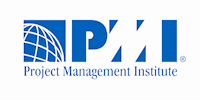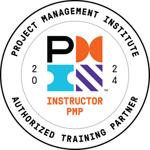
PMP® – Project Management Professional without Exam (Online)
PMP® – Project Management Professional without Exam (Online)
IBIS Consultancy Limited
Summary
- PMP® – Project Management Professional (Attendance Certificate) - Free
- Exam(s) / assessment(s) not included in price, and must be purchased separately
- Tutor is available to students
Add to basket or enquire
Overview
Elevate your career trajectory with our Project Management Professional (PMP) course, meticulously curated and delivered by the United Kingdom's leading PMI-accredited training center. This prestigious program is spearheaded by a PMI-accredited trainer, who is not only a distinguished alumnus with a PhD in Project Management from Cranfield University but also a venerated figure in the project management community.
Our course is strategically designed to mold you into an exemplary project leader, equipped with the skills that are highly coveted by employers worldwide. This includes a commitment to excellence and the ability to perform at the zenith of one’s capabilities. The PMP® credential, now encompassing predictive, agile, and hybrid methodologies, is a testament to your expertise and comprehensive experience in diverse project management styles.
Our trainer, a former director at PMI UK and a significant contributor to the PMI standard guide brings over 15 years of rich industry experience across various sectors. With a track record of not only earning the esteemed PMP certification himself but also guiding numerous aspirants to achieve the same, he stands as a paragon of knowledge and expertise in the field. Join us to transform your aspirations into reality under the mentorship of a true industry expert.
Why PMP Certificate?
1. Global Recognition
The PMP certification is globally recognized as the gold standard in project management. It is awarded by the Project Management Institute (PMI), a renowned international professional association. Having the PMP designation demonstrates your commitment to excellence and showcases your worldwide proficiency in project management practices.
2. Enhanced Career Opportunities
PMP certification opens doors to a wide range of career opportunities. Many organizations prioritize hiring PMP-certified professionals for their project management roles, as it validates your knowledge, skills, and ability to lead projects successfully. With PMP certification, you become a highly desirable candidate for project management positions across industries and sectors.
3- Expanded Professional Network
PMP certification provides access to a vast community of project management professionals. You can join PMI chapters, attend networking events, and engage in online forums to connect with like-minded individuals, share knowledge, and collaborate on industry trends and best practices. Building a strong professional network can lead to valuable connections, mentorship opportunities, and career growth.
4- Increased Earning Potential
PMP certification has a positive impact on your earning potential. According to PMI's Salary Survey, PMP-certified professionals earn significantly higher salaries compared to their non-certified counterparts. The certification showcases your expertise and adds value to your resume, making you eligible for higher-paying positions and promotions.
PMP certification instills confidence in your project management abilities. It provides you with a solid foundation of knowledge, tools, and techniques, enabling you to approach projects with greater assurance. The certification lends credibility to your expertise, reassuring stakeholders, clients, and employers that you possess the skills necessary to deliver successful projects.
Certification
PMI Project Management Professional (PMP)
Course media
Description
The Project Management Professional (PMP) certification, governed by the Project Management Institute (PMI), covers a comprehensive range of knowledge areas. These areas are essential for effective project management. As of the latest PMI standards, the key knowledge areas include:
Integration Management: Overseeing project integration by consolidating various processes and activities to ensure project components are aligned and managed effectively. This includes developing project charters, project management plans, and directing and managing project work.
Scope Management: Involves defining and managing what is and is not included in the project. This includes activities like planning scope management, collecting requirements, defining scope, creating a Work Breakdown Structure (WBS), validating, and controlling scope. PMP Scope Management is an essential aspect of project management that involves defining, monitoring, and controlling the scope of a project. It aims to ensure that the project stays on track and within its intended scope. The process starts with defining the project scope, which includes outlining the project objectives, deliverables, and constraints. Once the scope is defined, it needs to be monitored and controlled throughout the project's lifecycle to ensure that any changes are managed effectively. This involves communicating with stakeholders, managing change requests, and updating project documentation. Effective scope management is critical to the success of a project as it helps ensure that the project is completed on time, within budget, and to the satisfaction of all stakeholders.
Schedule Management: Planning, developing, managing, executing, and controlling project schedules. It involves defining activities, sequencing them, estimating their duration, developing a schedule, and controlling it. PMP Time Management is a crucial aspect of project management that involves developing a schedule, identifying activities, and managing time effectively. This process is necessary to ensure that a project is completed on time, within budget, and meets its objectives. PMP Time Management involves several key steps, including defining the project scope, identifying all tasks and activities, sequencing tasks, estimating the duration of these tasks, and developing a schedule. It also requires monitoring progress to ensure activities are on schedule or identifying any delays and making adjustments as necessary. Effective time management can help reduce project risks, increase productivity, and improve overall project success. As such, it is essential for project managers to have a strong understanding of PMP Time Management principles and techniques.
Cost Management: Involves planning and controlling the budget of a project. This includes estimating costs, determining budgets, and controlling costs. The PMP Cost Management topics are a crucial aspect of project management. It involves managing and controlling the project costs throughout the project lifecycle. The topics covered in PMP Cost Management include cost estimating, cost budgeting, and cost control. Cost estimating involves determining the approximate costs required for project completion. Cost budgeting consists in allocating the estimated cost to the various project activities. Cost control involves monitoring project expenses to ensure that they are within the budgeted amount. It is crucial to understand these topics to manage the project costs effectively and adequately. The PMP Cost Management topics also help ensure that the project budget remains under control and the project is completed within the allocated budget.
Quality Management: Ensuring that the project will satisfy the stated or implied needs for which it was undertaken. This involves planning quality management, managing quality, and controlling quality.
Resource Management: Identifying, acquiring, and managing the resources (like team members, equipment, materials) needed for the project. This includes planning resource management, estimating activity resources, acquiring resources, developing and managing the team, and controlling resources.
Communications Management: Ensuring timely and appropriate planning, collection, creation, distribution, storage, retrieval, management, control, monitoring, and the ultimate disposition of project information.
Risk Management: Identifying, analyzing, and responding to project risks. This includes planning risk management, identifying risks, performing qualitative and quantitative risk analysis, planning risk responses, and controlling risks.
Procurement Management: Managing the procurement of products, services, or results from outside the project team. It includes planning procurements, conducting procurements, controlling procurements, and closing procurements.
Stakeholder Management: Identifying people, groups, or organizations that could impact or be impacted by the project, analyzing stakeholder expectations and their impact on the project, and developing appropriate strategies for effectively engaging stakeholders in project decisions and execution.
Each of these knowledge areas encompasses specific processes that guide the project manager and team through the project lifecycle, from initiation to closing. Understanding and effectively applying these areas is critical to successful project management and is a key focus of the PMP certification.
Your Career Path
Mid-Level Positions (PMP certification becomes increasingly valuable here):
- Project Manager: Oversees complete projects, responsible for planning, execution, monitoring, controlling, and closure.
- Senior Project Manager: Manages complex and high-value projects, often overseeing multiple project teams.
Advanced Roles:
- Program Manager: Manages a group of related projects, ensuring they align with the organization's strategic goals.
- Portfolio Manager: Oversees a portfolio of projects and programs, making strategic decisions about project selection and prioritization.
Specialized Roles:
- Agile Project Manager: Specializes in managing projects using Agile methodologies.
- Risk Management Specialist: Focuses on identifying, analyzing, and mitigating risks in projects.
Executive Positions:
- Director of Project Management: Leads the project management office (PMO), setting standards and practices for project management within the organization.
- Chief Project Officer (CPO): Executive role, responsible for integrating project management with the company's overall business strategy
Who is this course for?
Apply if you have over three years of experience in leading or directing projects.
Requirements
- 60 months experience leading projects (with a high school diploma or associate’s degree)
- 36 months experience leading projects (with a four-year degree)
- 24 months experience if you’re a graduate of a GAC program
Career path
Mid-Level Positions
- Project Manager
- Senior Project Manager
Advanced Roles:
- Program Manager
- Portfolio Manager
Specialized Roles:
- Agile Project Manager
- Risk Management Specialist
Executive Positions:
- Director of Project Management
- Chief Project Officer (CPO)
- Executive Project Manager
- Project Management Office
Questions and answers
Certificates
PMP® – Project Management Professional (Attendance Certificate)
Digital certificate - Included
Reviews
Currently there are no reviews for this course. Be the first to leave a review.
Legal information
This course is advertised on reed.co.uk by the Course Provider, whose terms and conditions apply. Purchases are made directly from the Course Provider, and as such, content and materials are supplied by the Course Provider directly. Reed is acting as agent and not reseller in relation to this course. Reed's only responsibility is to facilitate your payment for the course. It is your responsibility to review and agree to the Course Provider's terms and conditions and satisfy yourself as to the suitability of the course you intend to purchase. Reed will not have any responsibility for the content of the course and/or associated materials.




